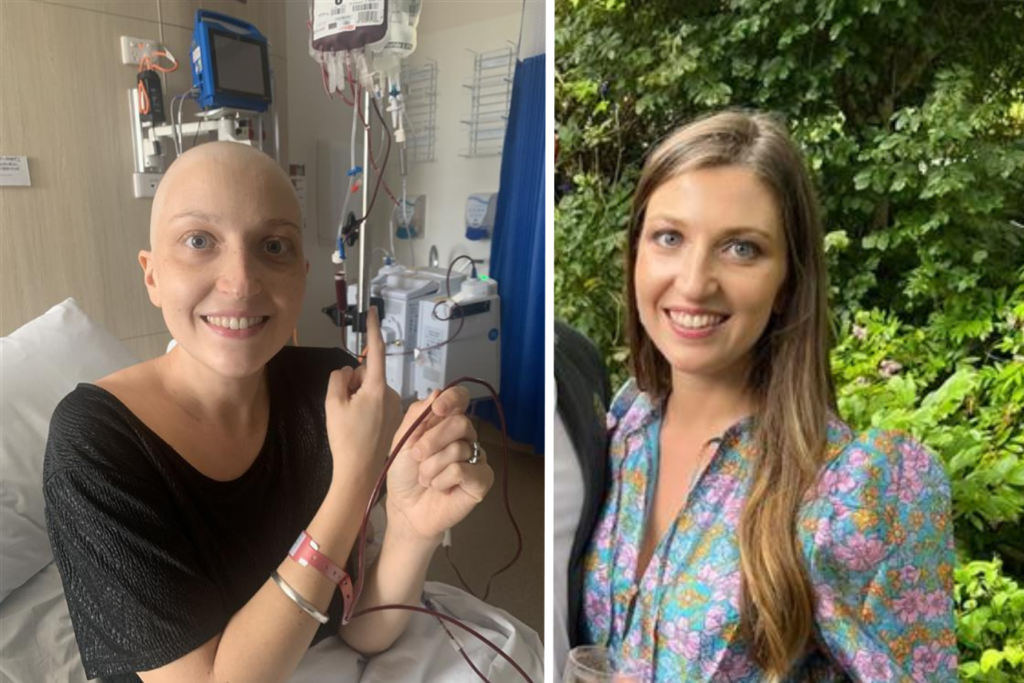Roseanna was on a backpacking holiday in Europe when she first noticed a lump at the base of her neck. At the time, she was completing her master’s degree at Oxford University (UK), and with exams coming up soon, she figured perhaps the lump and other symptoms were a virus from too much stress.
“I’ve always experienced periods of intense stress, where you sort of get to the end of them, then you get sick afterwards. So I just assumed that would happen,” Roseanna tells Women’s Agenda.
“Over time, the first lump that I had noticed and thought not much of grew, and by the time I got diagnosed, it was quite a large protuberance.”
Roseanna says she could feel other tumours in her neck, each of them painful, and was experiencing symptoms such as severe fatigue.
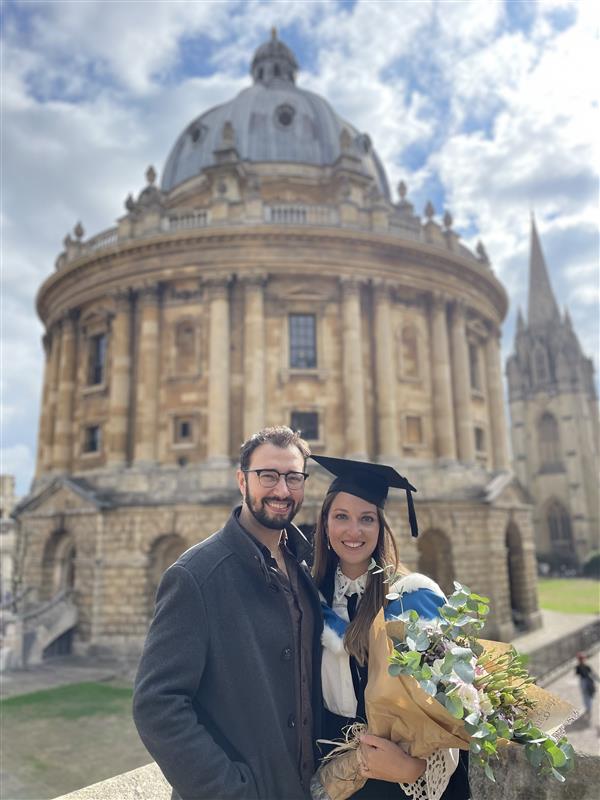
Never having had a genetic history of cancer in her family, Roseanna didn’t assume that’s what she had.
Even as she was sitting in the waiting room of a cancer centre to see a doctor, Roseanna remembers looking around and being in “denial” that she might have cancer.
“For my first appointment, [I remember] looking around thinking, ‘Oh my, I’m so sorry for all these people they must have cancer’,” she says.
“I was in such denial that I was in the waiting room myself, waiting to talk to a cancer doctor, and didn’t think I could possibly [have cancer].”
After being referred to a haematologist, Roseanna had a series of tests and scans that revealed tumours around the base of her neck. Further tumours were discovered in her spleen (the size of a golf ball), and she had an enlarged liver.
Roseanna was diagnosed with stage 3 Hodgkin’s lymphoma at age 30, in December 2022, before undergoing 4 rounds of chemotherapy over 12 weeks. Her last day of treatment was in April 2023, and she was declared in remission in May 2023.
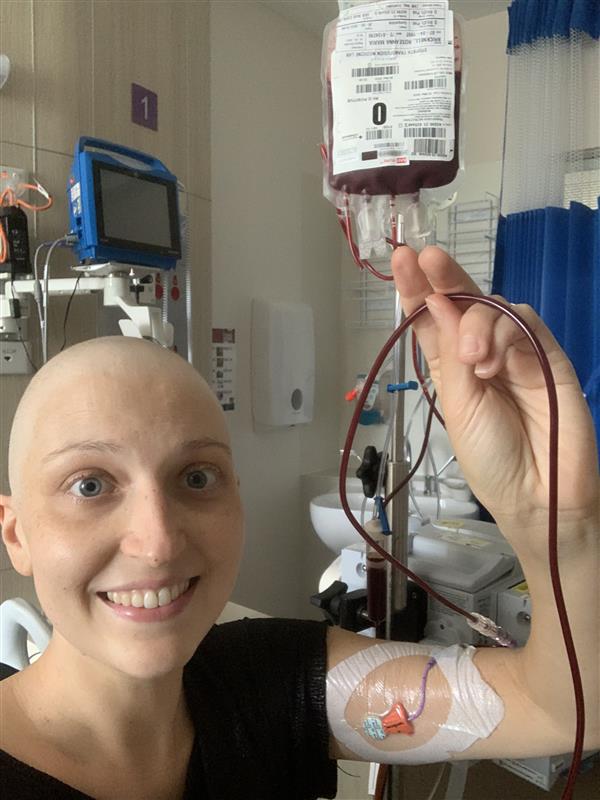
Two of the most physically painful experiences of her life, she says, came from her cancer journey – chemotherapy and her first egg retrieval process.
“I did the fertility treatment, and then there was a short break for Christmas, and then I started chemo in January, which was as soon as they could get me in,” she says. “I was on an escalated course of treatment. It was pretty hectic, and although I was meant to be an outpatient, I would end up in hospital for many weeks during my treatment.”
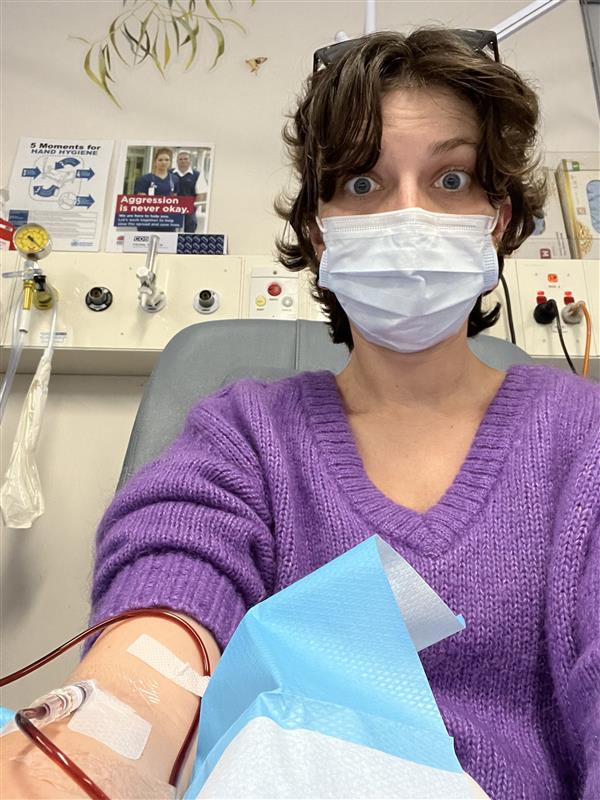
When she finally finished treatment, Roseanna was weak and immunocompromised, meaning she underwent a recovery period. And while she’s now generally well, she still experiences the side effects of cancer, as she tries to get back to normal life and her career as a successful lawyer.
“Oftentimes the return to normality can be emotionally and mentally much harder,” she admits.
And yet, Roseanna also says one of the biggest realisations over the course of her cancer journey is that “you can withstand way more physical pain than you think you can, and it all ends”.
“Any discomfort or pain you’re feeling won’t last forever. It’s just a battle between you and the clock, and you can outlast the discomfort,” she says.
“You don’t know what you’re capable of. Your limit is way higher than you think it is.”
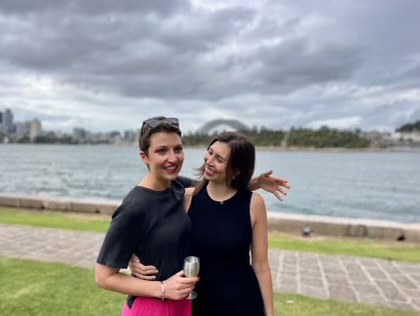
Roseanna is certainly not alone in her experience with blood cancer. An estimated 1 in 12 Australians will be diagnosed with blood cancer in their lifetime – that’s equivalent to 8 per cent of the Australian population. Of those diagnosed, 1 in 3 Australians will not survive five years after their diagnosis, according to the Leukaemia Foundation.
And more than 140,000 people are living with blood cancer or a related blood disorder in Australia today.
The Leukaemia Foundation has found that blood cancers combined is the second highest cause of cancer related deaths in the country making blood cancer one of the nation’s most deadly cancers.
Unlike many other cancers, there are no screening programs available for blood cancer, and there is no way to prevent blood cancer through lifestyle change, making further research and awareness of the issue critical.
The Leukaemia Foundation encourages Australians impacted by blood cancer, and those who’d like to discover more, to go to blood cancer.org.au.

